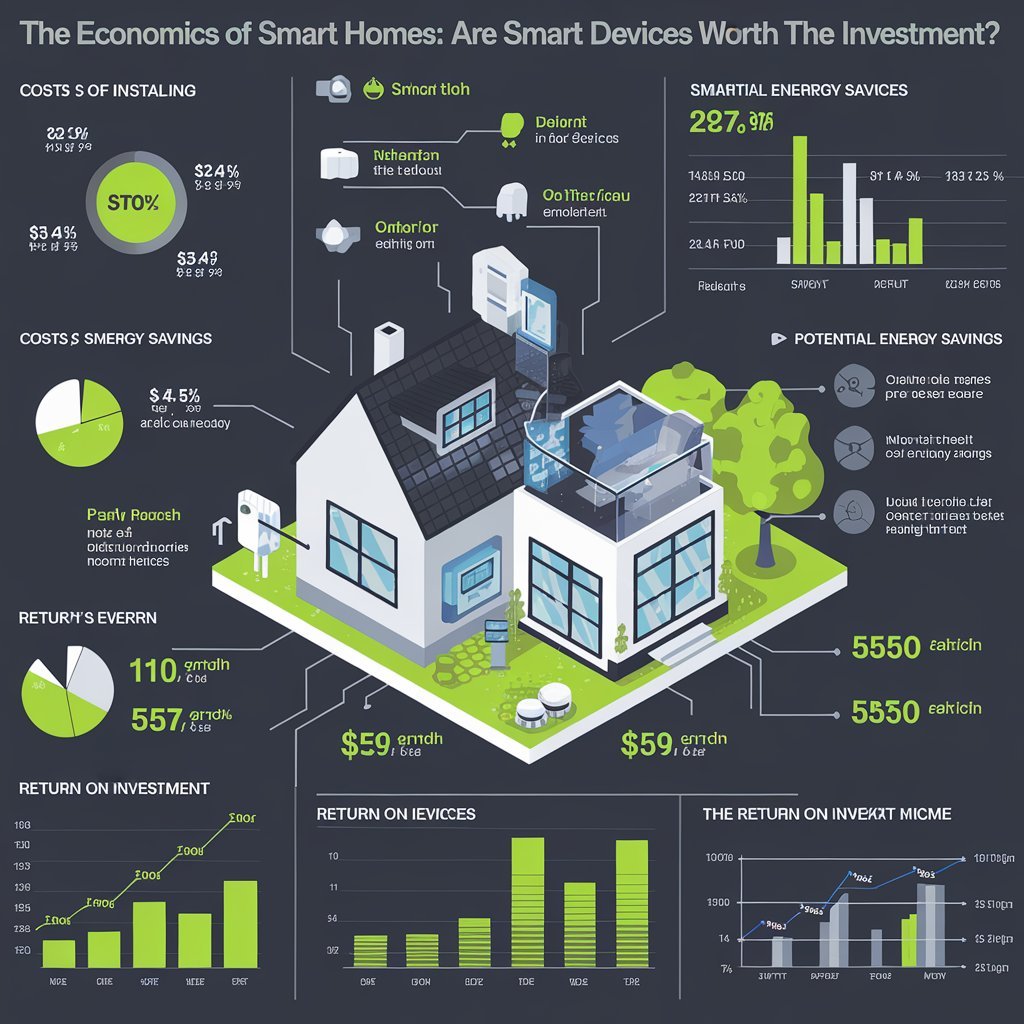What is a Smart Home?
A smart home integrates various devices and systems that can be controlled remotely via smartphone, tablet, or voice command. These devices communicate with each other and provide enhanced control over home functions.
Key Features of Smart Homes
Smart homes typically feature advanced systems such as smart thermostats, lighting, security cameras, and voice assistants. These systems offer convenience and increased efficiency.
Initial Costs of Smart Home Technology
Cost Breakdown of Popular Smart Devices
When investing in a smart home, initial costs can vary widely. For example:
- Smart Thermostats: $100 – $250
- Smart Lights: $15 – $50 per bulb
- Smart Security Cameras: $100 – $300 each
- Voice Assistants: $50 – $150
Installation Expenses
Depending on the complexity, installation costs can range from DIY setups to professional services costing hundreds of dollars.
Ongoing Costs
Maintenance and Subscription Fees
Smart devices often require regular updates and may have associated subscription fees for premium features or cloud storage. For instance, some security cameras have monthly fees for video storage.
Energy Consumption Implications
Although smart devices are designed to be energy-efficient, they do consume electricity. Monitoring and managing their use can help mitigate additional costs.
Financial Benefits of Smart Homes
Energy Efficiency and Utility Savings
One of the primary financial benefits of smart homes is their energy efficiency. Smart thermostats, for example, can reduce heating and cooling costs by learning your preferences and optimizing energy use.
Increase in Property Value
Homes equipped with smart technology often see an increase in property value. Potential buyers may be willing to pay more for a home with advanced features.
Potential for Tax Incentives
Some regions offer tax incentives for installing energy-efficient systems. Check local regulations to see if you qualify for any rebates or deductions.
Qualitative Benefits
Enhanced Security
Smart security systems provide real-time alerts and remote monitoring, enhancing home security and providing peace of mind.
Convenience and Lifestyle Improvement
Smart devices can streamline daily tasks, from controlling lighting and temperature to managing entertainment systems, making life more convenient.
Environmental Impact
By reducing energy consumption and waste, smart homes contribute positively to the environment, aligning with sustainable living practices.
Challenges and Considerations
Technological Obsolescence
Technology evolves rapidly, and smart devices can become outdated. Consider the longevity and upgrade potential of your investments.
Privacy and Security Risks
Smart devices can be vulnerable to hacking. Ensuring strong passwords and updating security settings can mitigate risks.
Compatibility and Integration Issues
Not all smart devices are compatible with each other. Research and choose products that work seamlessly together.
Case Studies and Real-World Examples
Case Study 1: Energy Savings with Smart Thermostats
A household that installed a smart thermostat saw a 20% reduction in energy bills over the first year. The device adjusted heating and cooling based on occupancy and weather patterns.
Case Study 2: Home Security Systems and Insurance Savings
Homeowners with smart security systems reported lower insurance premiums. Insurance companies often offer discounts for homes with enhanced security measures.
Comparing Smart Homes to Traditional Homes
Cost-Benefit Analysis
While the initial investment in smart home technology can be high, the long-term savings and added value can make it worthwhile. Compare the total costs and benefits to determine if smart devices fit your budget and lifestyle.
Long-Term Value Considerations
Consider the longevity and impact of smart home technology on your quality of life and property value when evaluating its worth.
Future Trends in Smart Home Technology
Emerging Technologies
The future of smart homes includes advancements like AI-driven systems, improved energy management, and enhanced user interfaces.
Predictions for Smart Home Economics
As technology becomes more affordable and efficient, the cost of smart home systems is expected to decrease, making them accessible to a broader audience.
Conclusion
Investing in smart home technology can offer significant financial and qualitative benefits. While the initial costs and potential challenges should be considered, the long-term savings, increased property value, and enhanced lifestyle can make it a worthwhile investment. Weigh the costs against the benefits and future potential to make an informed decision about integrating smart devices into your home.
FAQs
1. Are smart home devices worth the initial investment?
Yes, many smart home devices offer long-term savings on energy bills, increased property value, and enhanced convenience, making them a worthwhile investment.
2. How can smart home technology save on energy costs?
Smart devices like thermostats and lighting systems optimize energy use based on your preferences and habits, leading to reduced utility bills.
3. What are the potential privacy risks with smart home devices?
Smart devices can be vulnerable to hacking. To protect your privacy, use strong passwords, enable two-factor authentication, and keep your devices updated.
4. Do smart home systems increase property value?
Yes, homes with smart technology often see an increase in property value, as they offer modern features that attract buyers.
5. How do smart home devices impact the environment?
Smart devices help reduce energy consumption and waste, contributing positively to environmental sustainability.
